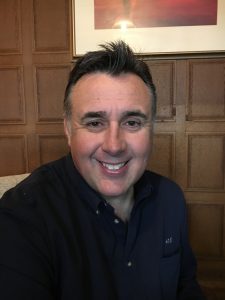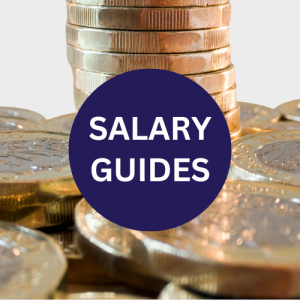Interview with Tony Crilly, HR Leader and Executive Coach
November 15th 2016 | Posted by phil scott
 Interview with Tony Crilly, HR Leader and Executive Coach
Interview with Tony Crilly, HR Leader and Executive Coach
Tony Crilly uses experience gained from working in senior HR positions around the world in his role as HR leader and executive coach. He spoke to HR Recruit about the role of HR in today’s businesses, what all successful organisations need to know about work/life balance, and how Brexit will shape the UK’s workplaces for years to come.
What attracted you to HR?
Like many HR professionals, I fell into it accidentally. That said, I’ve remained by choice!
I’ve always worked in people-focused roles, but joined what you would call ’mainstream HR’ in 2002. Prior to that I worked in IT and change roles.
I was given much of my grounding working for chemicals giant ICI, and was afforded many opportunities to travel the world, working with many different people and nationalities and within many different businesses.
In my role as a regional IT director in America, I established that the business was mismanaging its project pipeline and wasting resources. Using my IT knowledge I designed, project managed and implemented a customer relationship management system which revolutionised the business and was a key enabler for double digit growth.
I realised that this success had been largely down to successfully coaching those around me, my direct team and the wider business, effective communication both up and down and equipping the people with the right tools to do their jobs.
I had previously had the privilege of working alongside Satish Pradhan, later EVP HR of Tata. He is a very talented and generous man who gave me my first insights into ‘real’ HR and ignited my interest into it being a possible career choice.
So towards the end of my IT director role, and due to my interest in pursuing a career in HR, I was approached to take on a mainstream global HR role as corporate HR director, based in the Netherlands. My remit was to improve global HR processes and systems, providing business partnering to the corporate functions and providing leadership for talent management across the full business.
I loved it and have continued to work in senior HR roles ever since.
What HR topics are you passionate about?
Business results! Results give us the license to do everything else. As HR professionals, we must support long and short term results, and we can only do this by understanding the needs of the business.
I believe there are four main arms to HR:
Fundamental HR operations are the necessary foundation. The systems and processes in place that allow you to pay people appropriately and deliver administration around an employee lifecycle. The foundation should be ‘fit for purpose’. Best in class is not always the right target.
Top-down communication. Invest time in helping the workforce understand the vision and business strategy. Be able to answer ‘Why are we here? What is my purpose or goal in achieving the overall business goal?’
Bottom-up communication. We need to be highly attuned to employee engagement. We need mechanisms in place to allow employees to be heard. Don’t tell them how you are going to make life better for them, let them tell you. Employees are often in the best position to decide what changes would help them make a positive difference.
Talent agenda. Where do you get the biggest bang for your buck? There’s often a skew towards developing the top but you always need to remember that, if the engine isn’t firing, it doesn’t matter how good the driver is. Great leaders will always take the business further and are more likely to bring about positive surprises. You need great coaches at every level.
What are your views on work/life balance and how can HR drive this agenda?
I don’t believe there is a standard definition of a good work/life balance. Childcare, voluntary work, jet-skiing. Who are we to judge what makes a good balance? We all chose our own definition and businesses need to understand that different people need different opportunities to flex their time.
Early in my own career, my wife and I were expats in the USA and in the Netherlands and loved experiencing new cultures and the challenges of creating a home and a life in a new country. However, once our daughter was born we soon realised that this lifestyle wasn’t going to give us the balance that we wanted and so, since 2005, I have chosen to adapt my career and now commute to my place of work during the week and am close to our extended family at the weekends.
People with young families often need flexibility due to childcare but with millennials and the increased use of technology many people don’t see the immediate division of work and home.
Work is now part of their lifestyle. Checking emails late at night or at the weekends is the norm. How many people under 40 don’t have Facebook open most of the day? Businesses should see how this can be a huge advantage but offer the same level of flexibility to create space for those individuals in a way that makes sense for them.
What are the biggest issues facing HR professionals over the next three years?
Brexit is still an unknown. Even after several months we are left with a significant level of uncertainty.
If you start at the beginning of an employee life cycle, there could be implications for Europeans who are jobseeking that may feel uncertain about what the future holds for them. Additionally, I believe some employers may now think twice before employing a European candidate due to the uncertainty of what could happen in the future.
In the longer term, we may see European candidates opting to study in European universities rather than British establishments and so we may be faced with a decreased talent pool in the coming years.
I think there are many organisations who currently employ a number of Europeans and both the employee and the business are wondering what the future holds which could see issues with engagement or turnover.
But Brexit is also a chance for the industry to show how HR has moved from a transactional ‘personnel’ role to a successful business partnering model.
And whatever your profession, it is also important to stay abreast of change, particularly in human resources.
I would encourage all HR professionals to learn and read about neuroleadership. Fundamentally, it uses science and looks at the way our neuro pathways are developed to explain how we are hardwired to keep doing what we have always done.
It creates thinking space, challenges the status quo. To create something new, you must question reality. Take flexible working. If business leaders are prepared to question why they have always insisted on 9-to-5 office hours and be brave enough to offer something new, they could reap a huge amount of competitive advantage and maximise the potential of their employees.

 Interview with Tony Crilly, HR Leader and Executive Coach
Interview with Tony Crilly, HR Leader and Executive Coach

